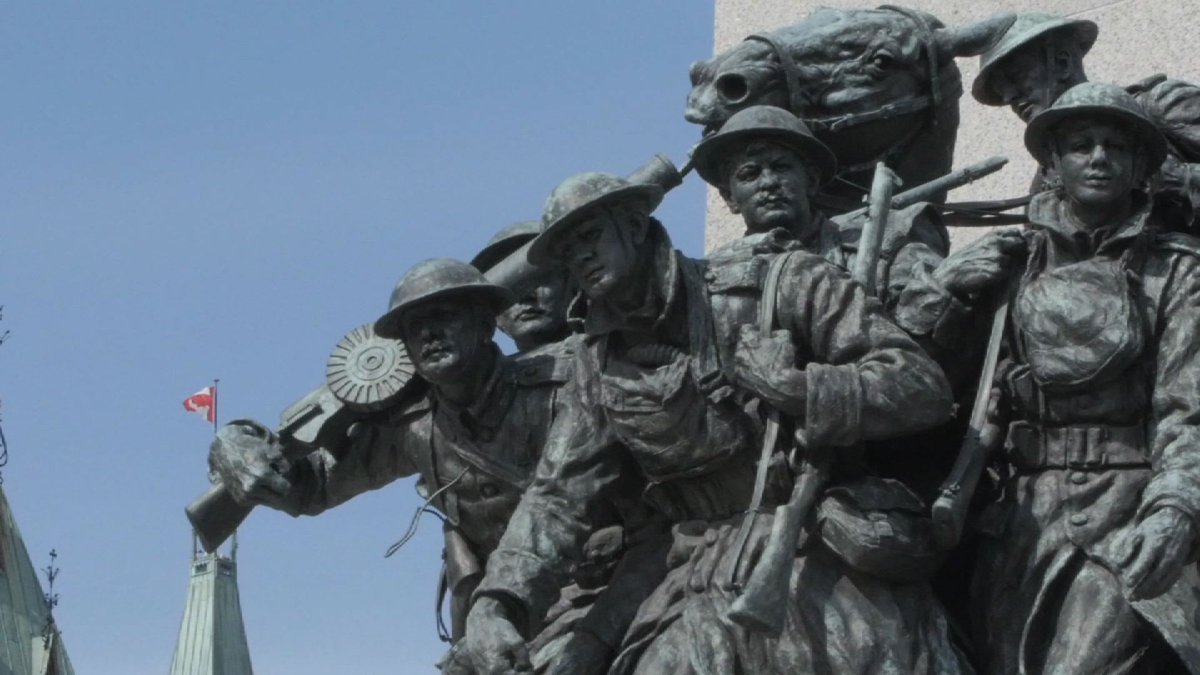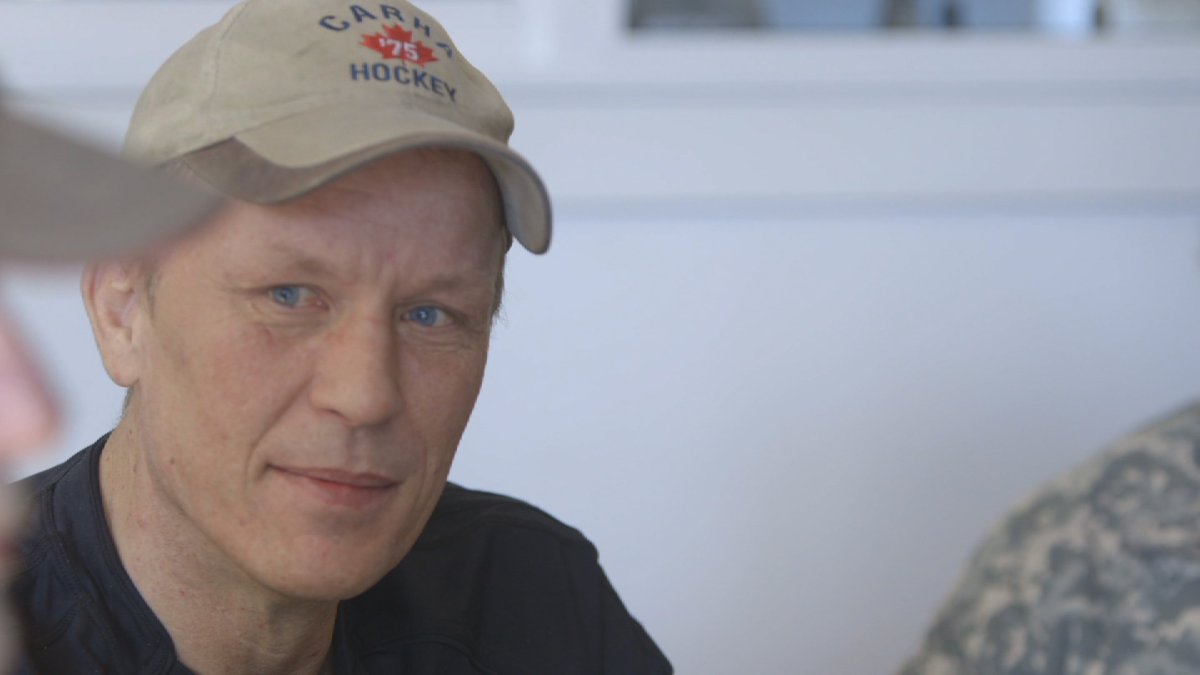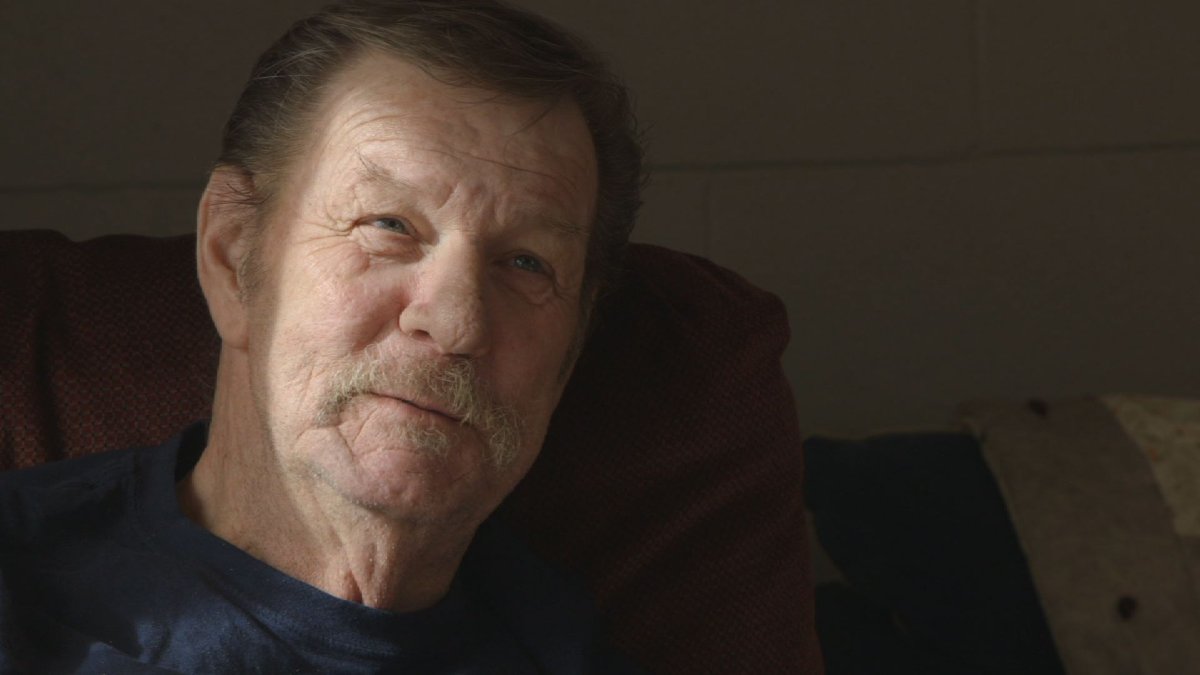16×9 spent a week in Alberta filming “Left Behind”. We met some fascinating people: veterans, health care providers, police. Below are some extended interviews of the people who opened up to us.

Veteran Lorne Lorenzen
Rank: Private, Canadian Armed Forces
Age: 57
Time in service: 5 years
Time on the street: 32 years
Where he is now: After living on the street for three decades, Lorenzen finally got help. He was diagnosed with PTSD and could receive benefits if his PTSD is linked to his time in the service. He is also, with a bursary from the Calgary Homeless Foundation, taking classes in social work and hopes to become a peer support worker for other homeless veterans. He also signed a lease on his own apartment, the first in 32 years.
In his own words: Lorenzen talks about going to school to study social work and help other homeless veterans.
Veteran Cameron Snyder
Age: 46
Time in service: 3-4 years
Where is he now: Snyder moved into The Madison in 2012. Prior to that, he was living in shelters, on couches, in his car, struggling with addiction and working temporary jobs. He signed up for the military in 1988 and served for three years, including a posting in Cyprus. He hurt his knees while in service and is applying for benefits.
In his own words: Cameron Snyder talks about structure in the military and why it helped him.

In his own words: Snyder gives 16×9 a tour of his apartment at The Madison.

Veteran Gerald Zaleschuk

Get breaking National news
Rank: Private, Canadian Armed Forces
Age: 71
Time on the street: Almost 20 years
Where is he now: Zaleschuk, whose nickname was “Pops” on the street, has been living at the Madison since 2013. He signed up for the military as a teenager, and says he served 10 years. After he left, he was in and out of trouble with the law, struggled with addiction and finding work. He says he camped in parks for decades, didn’t like going to shelters and credits The Madison with saving his life.
In his own words: Zaleschuk talks about moving into The Madison and whether life in the military is harder than life on the street.

Trish Dribnenki
Rank: Psychiatric outreach nurse
What she does: Dribnenki was an Outreach Nurse in a clinic for veterans with mental health issues and at risk of experiencing homelessness. She was tasked with reaching out to homeless veterans, helping locate them and get them into services they needed. She has worked with Lorenzen and the veterans at The Madison. She is now a clinical nursing consultant and instructor with the provincial addiction and mental health team for Alberta Health Services.
In her own words: Dribnenki talks about how homeless veterans are unique and have different presentations than other individuals who may be experiencing homelessness.

Paul Fisher
Rank: Constable, Calgary Police Service
What he does: Constable Fisher is an almost twenty year veteran of the Canadian Armed Forces, serving overseas on multiple deployments, including Afghanistan. Now, along with some other members of the CPS, many also veterans, he will look for homeless veterans in Calgary. Constable Fisher knew many of the men who now live at The Madison when they were homeless and he often drops by for a visit.
In his own words: Constable Fisher talks about how, without the support of his wife or family, he could’ve been like one of the men at The Madison and the sympathy he feels with their situation.










Comments